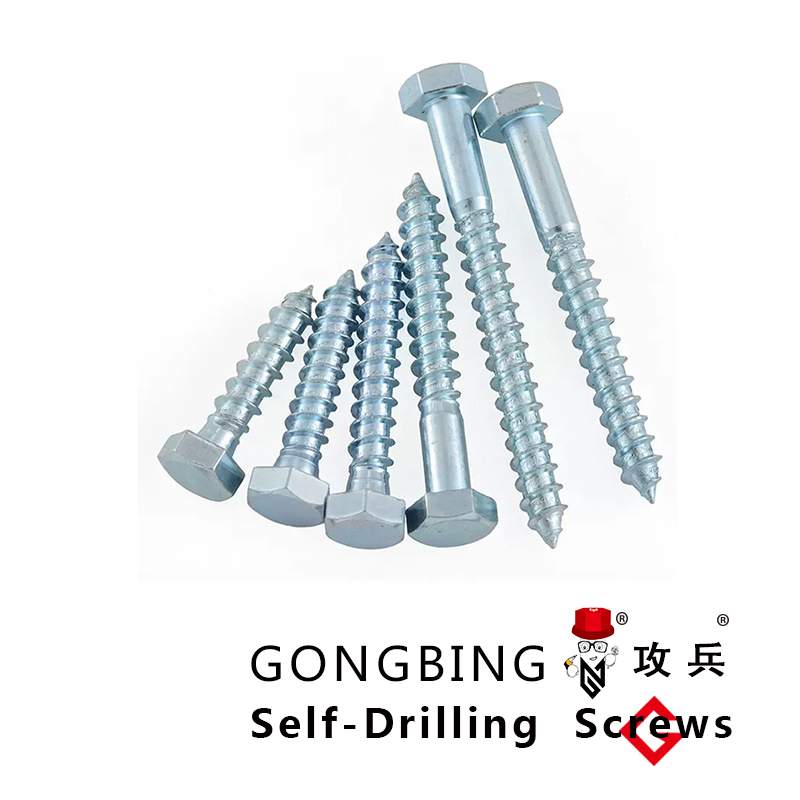Production Facility for Chipboard Screws and Related Fasteners
The Chipboard Screw Factory A Cornerstone of Modern Manufacturing
In the realm of modern manufacturing, the importance of specialized fasteners cannot be overstated. Among these, chipboard screws play an essential role in the assembly of various substrates, particularly in the furniture and construction industries. A chipboard screw factory emerges as a pivotal element in this production chain, bringing together innovation, technology, and efficient processes to meet the ever-growing demands of the market.
Understanding Chipboard Screws
Chipboard screws are specifically designed to be used with particle boards, MDF (medium-density fiberboard), and other engineered wood products. They possess a unique thread design, allowing for improved grip and reduced splitting of the material. Typically made from steel and often coated for corrosion resistance, these screws are available in various lengths and diameters to cater to a wide range of applications.
The Manufacturing Process
The production of chipboard screws begins with the careful selection of raw materials, primarily high-quality steel wire
. Once the wire is sourced, it undergoes a series of processes, including cutting, threading, and coating.1. Wire Drawing and Cutting The steel wire is drawn through a series of dies to achieve the desired thickness. Afterward, it is cut into specific lengths suitable for chipboard screws.
2. Threading The critical aspect of chipboard screw manufacturing lies in threading the screw. This is achieved through a cold forming process, which uses high pressure to create the desired thread profile without compromising the metal's integrity. This process not only improves the resilience of the screw but also enhances its overall performance.
3. Heat Treatment Once threaded, the screws undergo heat treatment. This process is vital as it increases the hardness and tensile strength of the screws, making them more durable under stress.
4. Coating To enhance corrosion resistance, chipboard screws are often coated with materials like zinc, black oxide, or epoxy. This step is crucial, especially for screws intended for outdoor use or in high-moisture environments.
chipboard screw factory

5. Quality Control At every stage of the manufacturing process, stringent quality control measures are in place. The factory employs advanced testing methods, including tensile tests and corrosion resistance assessments, to ensure that only high-quality products reach the market.
Technology and Innovation
Modern chipboard screw factories leverage technology to optimize their production processes. Automation plays a significant role, with computer numerical control (CNC) machines and robotic arms performing repetitive tasks with precision. This not only speeds up production but also minimizes human error, ultimately resulting in a more consistent and reliable product.
Additionally, advancements in material science have led to the development of innovative coatings and treatments that further enhance the performance of chipboard screws. As sustainability becomes a focal point in manufacturing, some factories are exploring eco-friendly processes and materials, aligning with the global movement towards greener production.
Market Demand and Applications
The demand for chipboard screws has seen a significant surge, driven by the booming furniture industry, construction projects, and DIY enthusiasts. As more people turn to flat-pack furniture and modular designs, the need for reliable fastening solutions grows.
Moreover, chipboard screws are not limited to just wood applications; they are increasingly finding their way into various composite materials, expanding their utility across different sectors. This versatility makes them an integral part of modern manufacturing practices.
Conclusion
A chipboard screw factory embodies the amalgamation of tradition and innovation in manufacturing. As the backbone of the furniture and construction industries, these facilities produce essential components that enable efficient assembly and durability in products. With advancements in technology and a focus on quality, chipboard screw factories are well-positioned to meet the challenges of the future, ensuring that they continue to play a vital role in the landscape of modern manufacturing. As we advance, the journey of these factories, from raw material to finished product, will remain a vital narrative in the story of industrial progress.
-
Weatherproof Plastic Expansion Anchors for OutdoorLabaraiJun.06,2025
-
Sustainability in the Supply Chain: Eco-Friendly TEK Screws ProductionLabaraiJun.06,2025
-
Load-Bearing Capacity of External Insulation FixingsLabaraiJun.06,2025
-
Double Head Bolts: Enhancing Efficiency in Industrial MachineryLabaraiJun.06,2025
-
Corrosion Resistance in Chipboard Screws: Coatings for Wholesale DurabilityLabaraiJun.06,2025
-
Butterfly Toggle Bolts : Enhancing Structural ResilienceLabaraiJun.06,2025
